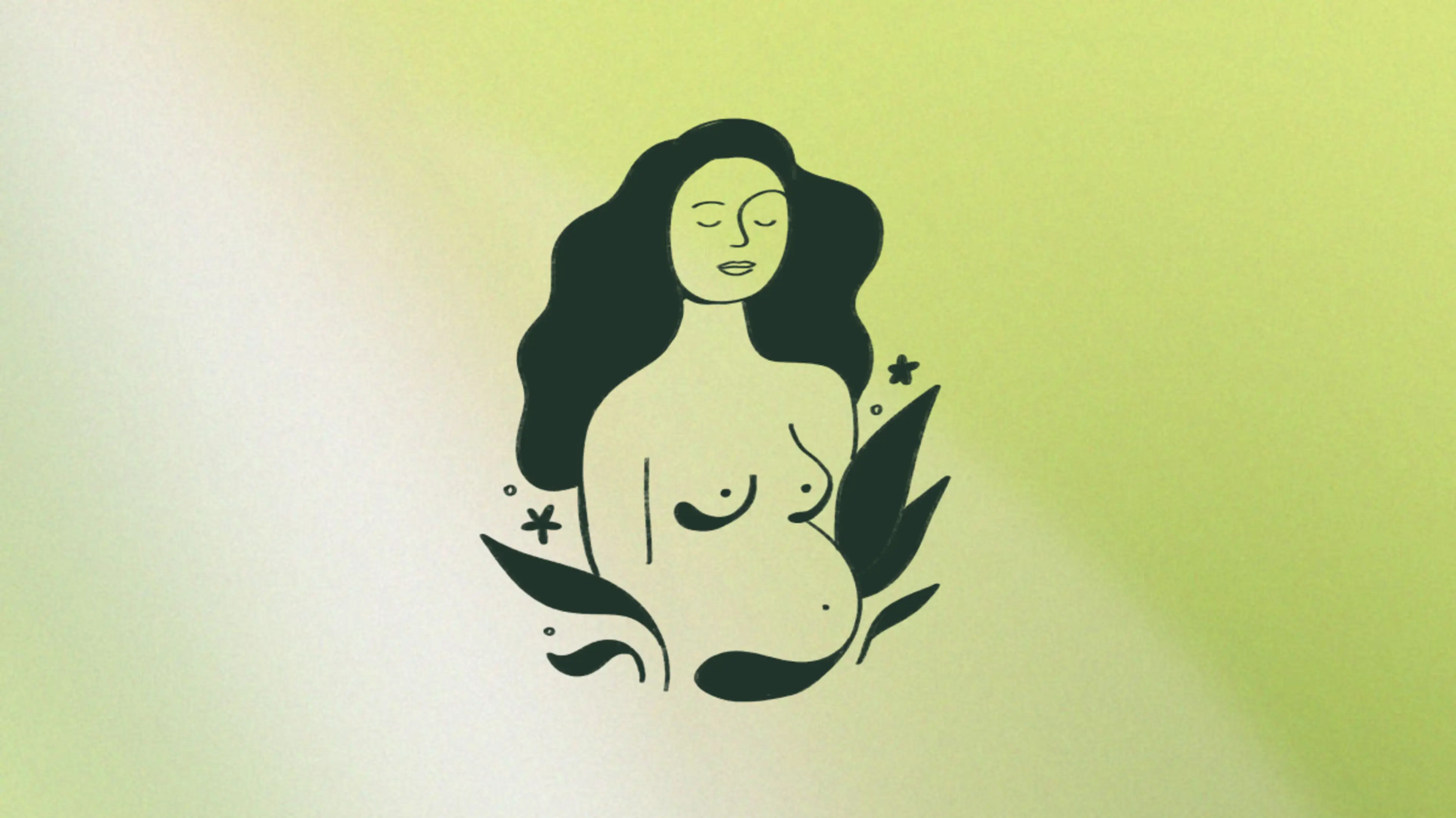I’ll never forget Thanksgiving 2016. While I lay in a miserable heap on the living room floor, eight of my friends talked and laughed over a table full of potluck offerings. We all assumed I had just had too much to eat, or maybe some dairy accidentally slipped into one of the dishes. Four days later, I found out I was pregnant.
My entire first trimester, I struggled with persistent nausea, zero appetite, and extreme fatigue. Looking back, I now realize I was woefully unprepared for all the physical and emotional effects that morning sickness would have on my life. I had no idea during that Thanksgiving that it would be the first of many events that I would miss out on over the coming months.
Easily one of the most well-known symptoms of pregnancy, morning sickness is often one of the earliest and most anticipated signs that a baby is in your future. While you probably have a good idea about how it can affect your body—nausea, vomiting, food aversions, all the stuff you usually hear about when it comes to morning sickness—what might take you by surprise is how it can also affect your mental health.
There are a lot of different ways morning sickness can show up, from when it starts to how long it lasts to the severity of your symptoms. That means there are also a lot of ways it can affect your day-to-day life and your overall feelings about your pregnancy.
Whether you're thinking about one day having a baby and are just curious, newly pregnant and worried about developing symptoms, or already deep in your morning sickness journey, here's everything you need to know about how this not-so-fun hallmark of the first trimester can make you feel, inside and out.
When Does Morning Sickness Start?
As a telltale sign of early pregnancy, morning sickness is often one of the first noticeable symptoms that something is going on in there. It usually shows up around week six, but every pregnancy is different—you might not start feeling nauseous until later in your first trimester, or you may feel queasy before you've even taken a pregnancy test.
Regardless of when it starts, normal morning sickness symptoms fade by the end of the first trimester, right around week 12 or 13 (though in some rare cases, about 3% of pregnancies, it can last until delivery day). This symptom is also a bit of a trickster—while it may be called morning sickness, don't be surprised if you end up feeling nauseous all day and all night, or any time you're around food and/or strong smells.
It’s also important to note that morning sickness itself isn't just one thing; it consists of three symptoms: nausea, vomiting, and food aversions. You may experience just one or two of them, or you may end up feeling all three. The intensity can also vary pretty widely—your morning sickness might feel like slight queasiness during weeks six through eight, or you might spend 80% of your first trimester hugging the toilet and refusing everything except water and Saltines (and even those are iffy).
While it might be one of the more talked about symptoms of early pregnancy, morning sickness isn't a sure thing—about 30% of pregnant women never feel it. It’s easy for those who've been through these symptoms to consider that 30% of the pregnant population the lucky ones. But if you’re a member of this group, you may not feel the same way. In fact, for some people, not experiencing one of pregnancy's most (in)famous symptoms might make you feel like you're missing out. Rest assured, your pregnancy is just as valid and real as someone who spends the first couple months in a mad dash to the bathroom.
When to Call Your Doctor
While morning sickness is relatively common, there is a point where it can become too intense. It's totally normal for morning sickness to be uncomfortable and inconvenient, but it's not normal if you're vomiting to the point of severe dehydration (causing overwhelming fatigue and/or fainting), if you can't keep any food down, if you're losing weight, or if your symptoms last well beyond the first trimester.
These more extreme symptoms are classified as hyperemesis gravidarum, or HG, which quite literally means "excessive vomiting." HG is a severe version of morning sickness that can sometimes require special medical treatment, including prescription anti-nausea medicine and hospitalization to replenish fluids.
HG can be debilitating and even a little bit scary, but as long as you get the medical treatment you need, it's unlikely that there will be any long term effects, says Dr. Michael Green, ob-gyn, co-founder of women's telehealth company Winona and founder of YouTube channel Medtwice.
Morning Sickness & Your Mental Health
It's well known that morning sickness can affect your physical health. But what isn’t talked about enough is the role morning sickness can play in your mental health.
When I was pregnant with my first kid, morning sickness hit me hard. I was nauseous literally all the time, I could only keep down Ritz crackers, ginger ale, and peppermint gum, and I lost 15 pounds in just two months. But all those physical symptoms weren't the worst part—it was the fact that they kept me couch-ridden.
While all my family and friends were out living their lives, throwing dinner parties, going on hikes, and seeing concerts, I was stuck on the couch feeling absolutely miserable. I declined so many invitations during those few months and I missed out on memorable occasions with my loved ones.
It was easily the most isolating time of my pregnancy, especially since I was the first out of my group of friends to be pregnant. None of them really understood how miserable I felt. And seeing everyone's Instagram posts of all the events I was missing made it so much worse. Despite having some visitors and well-meaning attempts to make me feel included, I was constantly grappling with loneliness, which led to a depression that lasted the vast majority of my pregnancy.
Even if you're feeling well enough to participate in social activities, morning sickness can still be really disruptive to your overall mood, and it can sour your perspective on your pregnancy.
"It robbed a lot of the joy of my first pregnancy because I felt like all I wanted to do was lay on the cold tile floor and try not to barf," says Alyssa, a mom of two in Los Angeles. "I also felt like I missed out on a lot of the fun stereotypical cravings and ate a lot of crackers, bread, and noodles, but not in a 'whee, carbs' way."
Morning sickness can make you question why pregnancy is so often seen as a beautiful and joyous occasion—especially if it's your first time going through it. You might wonder why no one ever told you it could feel so bad. And it's totally understandable to have feelings of envy and isolation as you see other people having an easier time with their pregnancies—you're not having the pregnancy experience you dreamed of.
Looking back on my first pregnancy (now seven years on the other end of it), I think the thing that helped me the most was having well-meaning friends and family who showed up for me. For three solid months, even through my sour moods and even sour-er stomach, my pregnancy support system was always there with crackers stashed in their bags and mint gum at the ready. The only thing that could have made my morning sickness experience even easier—and what I now give to friends who are going through it—is the assurance that it would, in fact, eventually end.
How to Feel Better (or at Least Less Bad)
There is some good news, though. Thousands of years of pregnancy, morning sickness, and science means there are quite a few tried-and-true methods for relieving the worst of it.
Here are some things you can try to make this phase more manageable and to start to feel more like yourself again:
Stay hydrated: Dehydration can make nausea worse, so try to sip water throughout the day. And if your stomach can handle it, try adding electrolyte drinks to replace minerals you may have lost due to vomiting. You can also stay hydrated with tea, and flavors like ginger and peppermint have the added bonus of helping to reduce nausea. Dr. Green also recommends eating ice chips if you're having an aversion to drinking liquids.
Eat small, frequent meals: Instead of large meals, Dr. Green suggests opting for smaller, more frequent nutrient-dense snacks to keep your stomach from becoming too empty or too full, which can make nausea worse.
Drink your meals: "Try eating foods that you can sip on like soups or smoothies," says Rachelle Mallik, a registered dietitian and founder of The Food Therapist. "Or if that's too much work, try pre-made nutrition or protein drinks." If you're going the protein drink route, Mallik notes that they may contain large amounts of added vitamins and minerals, which you may want to avoid if you're also taking a prenatal multivitamin. Talk with your doctor before adding any nutritional supplements to your diet.
Eat or drink ginger: "I’m a big advocate of ginger, a natural ingredient with anti-nausea and anti-inflammation properties," Dr. Green says. "Try ginger tea, ginger candies, or ginger capsules (with your doctor’s green light)."
Go cold: If you're having aversions to certain smells, try eating cold foods instead of hot foods. "Cold foods emit less odors so they can be easier to tolerate than hot foods," Mallik says.
Keep a bedside snack stash: Starting your day with an empty stomach can lead to worse nausea throughout the morning. Keep a stash of crackers or other plain, bland foods by your bed so you can take a few bites before getting up for the day. Having even a tiny amount of food in your stomach can help keep nausea at bay.
Avoid triggers: Identify and avoid smells or foods that trigger your nausea. Opt for bland, easily digestible foods, and keep your eating and cooking areas well-ventilated.
Rest: First-trimester fatigue is a common companion to morning sickness, and it can actually make nausea worse, Dr. Green says. He recommends getting adequate rest and taking short naps as needed during the day.
Acupressure bands: "There are wristbands designed for motion sickness now that might provide relief through acupressure," Dr. Green says. These bands apply pressure to specific points on the wrist, which may help reduce nausea.
While morning sickness can feel like a never-ending battle, these options can help alleviate the symptoms. When you feel at your worst, it's also important to remember that you're not alone; seeking support from healthcare professionals, friends, or online communities can provide valuable guidance and the reassurance you need to not feel isolated. Remember that this phase is temporary and that, even through the worst of morning sickness, your body is capable of incredible things.
That miserable Thanksgiving party that signaled the start of my first pregnancy is a distant memory for me now, but I’ll never forget the support and gentle care that got me through the bleary, nausea-filled first trimester. When morning sickness hit me all over again in my second pregnancy, I kept those memories at the front of my mind, remembering to be gentle with myself, especially in moments of isolation and loneliness. If you’re stuck on the floor, on the couch, in bed, or next to the toilet while everyone else seems to be living their lives, please be kind to yourself. Eat what you can, rest when you can, and remember that you’ll be back to normal eventually (with a baby to show for it).












